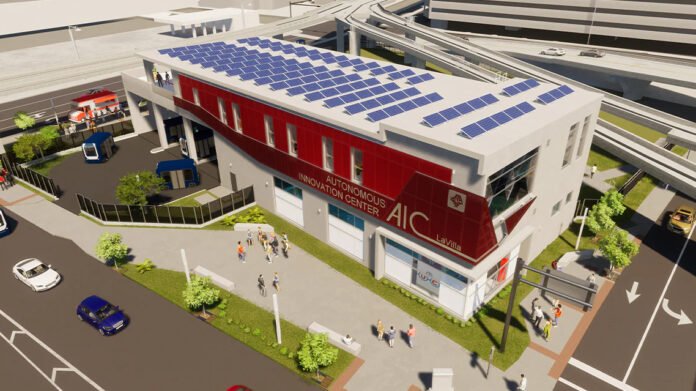Mobile operator T-Mobile has deployed a private 5G network in the City of Jacksonville, Florida, to connect a fleet of autonomous vehicles along the city’s waterfront and urban centre. The project is a part of the city’s so-called Ultimate Urban Circulator initiative to expand its automated light railway (“people mover”) service, called Skyway, and introduce autonomous vehicles into the local transport system. The Jacksonville Transportation Authority (JTA) is in charge of the project.
Local facility management and system integration company Miller Electric Company is deploying new “bus-shaped, fully autonomous shuttles”, which will transport visitors along a three-mile stretch from the EverBank Stadium, home to the city’s football team, to its new waterfront development. These will be connected to T-Mobile’s private 5G network, sold under the guise of its enterprise-facing Advanced Network Solutions (ANS) team, which counts Dell, Ericsson, and Nokia as vendor partners, variously.
There is no word on spectrum usage; but it seems entirely likely the project will use a localised tranche of licensed T-Mobile spectrum, and not the shared CBRS band. The new private 5G network, being deployed alongside power and fibre connectivity for the larger waterfront redevelopment project, will deliver two-way comms, plus IoT telemetry data and audio and video feeds, between the new shuttles and a command centre, explained T-Mobile. It stated: “Solutions such as Wi-Fi, have limited reach and can limit the reliability and scalability of an autonomous fleet.”
The autonomous shuttles will be on the road by mid 2025, as part of the first of three phases in JTA’s Ultimate Urban Circulator project. “This initial phase lays the foundation for the expansion of automated shuttles to connect to adjoining neighbourhoods,” said T-Mobile.
Craig Bowman, director of technology at Miller Electric, said: “5G connectivity provides the highest bandwidth and lowest latency communication between the automated vehicles and the control centre. This turnkey solution will enable the vehicles to navigate the streets alongside other vehicle traffic and will ensure the bandwidth we need is available to stream real-time video surveillance and two-way audio and video communications between passengers and employees.”
Mishka Dehghan, senior vice president of strategy, product, and solutions engineering at T-Mobile Business Group, said: “5G is the key [to] unlock the autonomous vehicle future that science fiction has teased us with for years. Because [it] offers the flexibility to build dynamic solutions like private 5G networks, our customers can actually build the future they envision, not just imagine it. I’m excited to see how this solution will support a thriving urban corridor and give visitors convenient and futuristic transportation options.”

